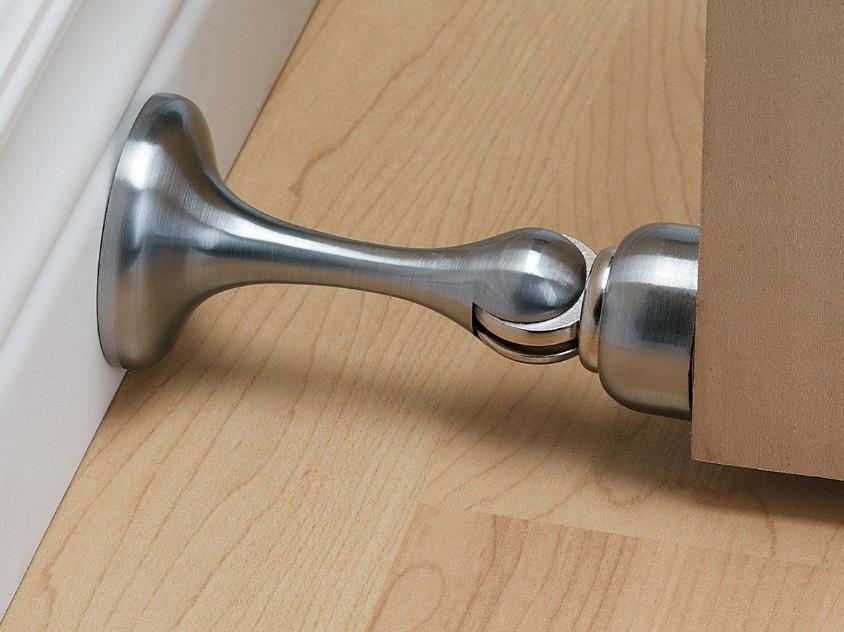Writer’s Note: The unseen forces that surround us and shape our lives are so fascinating—and I mean the literal ones, like magnetism or gravity, not just the metaphysical ones, though I also have doubts about how different those really are. If the spiritual and metaphysical are anywhere, then they’re here, they’re now, they’re ordinary and constant. They’re in humankind and they’re also in the magnetic doorstop.
Magnetic Doorstop
You can feel the magnet in the wall reach
to clutch the magnet in the door, pulling,
straining. When they come close
enough, they spring at one another,
plunge together, drawn by just one
of the endless unseen forces
of this house: lightning hovering
and coursing in the walls, awaiting the mage-
touch on the switch; the spiral radula
of each screw biting and biting,
holding one beam or one stud to the next,
defying the strangest magic of all, the draw
of the earth toward its core, down
and down. Everything pulling at everything
else. Almost as if the whole universe runs
on love. Only you don’t know what power
drags one thing toward another: whether
love, or the impulse to devour.
⧫
Catherine Carter is the author of three full-length collections of poetry. The most recent is Larvae of the Nearest Stars (LSU Press, 2019). In addition to the Delmarva Review, her poetry has appeared in Best American Poetry, Orion, Poetry, Ecotone, RHINO, and Ploughshares, among other publications. Raised on the Eastern Shore of Maryland, she now lives with her husband in Cullowhee, North Carolina, and is professor of English at Western Carolina University. Website: CatherinCarterPoetry.com.
Delmarva Review publishes evocative new prose and poetry selected from thousands of submissions annually. Designed to encourage outstanding writing, it is an independent, nonprofit literary publication. Financial support comes from tax-deductible contributions, sales, and a grant from the Talbot County Arts Council with funds from the Maryland State Arts Council. Website: DelmarvaReview.org.


